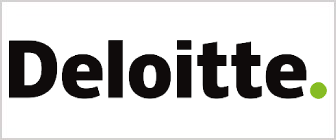What is the most significant development in your region/jurisdiction's tax practice in the past 12 months?
The Americas continue to address a number of changes that will impact controversy. As a result of the COVID-19 pandemic, the United States recently enacted the Coronavirus Aid, Relief, and Economic Security (CARES) Act on March 27, 2020. This economic relief package included numerous tax provisions that increased the need for clients to work with their advisers in interpreting the new law and understanding the potential opportunities available to provide much needed liquidity.
How do you anticipate that change impacting your work and the market moving forwards?
It is too early to assess the impact of the CARES Act on tax controversy. One of the more notable provisions modified the treatment of Net Operating Loss (NOL) carrybacks. For tax years beginning before 2021, taxpayers will be eligible to carry back NOLs to the prior five taxable years.
Due to increased legislation (i.e. CARES Act and TCJA) and modest budget increases in the US, tax administrations may continue to utilize centralized decision-making and the deployment of limited resources to allow for a more strategic approach. That said, it may take time for the tax authorities to see real change as many audit personnel continue to traditionally scope their examinations independently and may not adjust to the new approach immediately.
Deloitte's tax controversy professionals in the Americas take the premise seriously that financial statement certainty and issue resolution are key goals of chief financial officers and tax executives. Moreover, our controversy professionals appreciate that tax and reputational risks are concerns of tax-oriented corporate executives. We continue to strive to provide clients with tax advice augmented by our insights into the merits of regional campaign processes and how the issues are developed in various countries.
What impact do you see the COVID-19 pandemic having on your work directly and on the wider tax environment, in both the short and long term?
Given the health concerns that emanate from COVID-19, we expect tax administrations, taxpayers and their advisers to continue to work remotely when appropriate. This will in turn create the need to develop additional technological capabilities that will ensure there are effective and efficient ways in which to communicate, network and remain productive while working through the various tax controversy matters.
Given the likely long-term implications of COVID-19 on things like remote working and digital retail, how do you see tax technology developing to accommodate this new reality and where do you think the next area of focus might be?
The next area of focus is digital. However, COVID-19 has accelerated the shift to digital and underlined the need and urgency to establish a virtual working environment.
With this shift, we expect a greater focus to be on the digital experience – leveraging technologies to work remotely while still being collaborative and effective.
Given budget cuts and recent talent impacts, automation will likely play a big role in helping taxpayers (and their regulators) accomplish more but with fewer resources. Automation goes beyond the basic, repetitive task. Machine learning and artificial intelligence enable new forms of 'smart' automation that may provide potential for automation of higher-order tasks that may yield new opportunities.
What potential other legislative changes are on the horizon that you think will have a big impact on your region/jurisdiction?
It is too early to tell. Given the COVID-19 Pandemic and its impact on the US, there has been talk of additional relief for taxpayers. Such relief may come in the form of provisions that will have an impact on taxpayer's filing and payment responsibilities. To that effect, there is a strong likelihood that any change will have a significant impact on our tax controversy practice.
What are the potential outcomes that might occur if those changes are implemented?
Tax administrators will need to adjust their compliance plans to work through the various enforcement challenges created by the CARES Act. For many taxpayers, the recent change in law resulted in the need to amend tax filings. Dedicated professionals on both sides of tax administration will need to address the technical changes presented by the new tax law. Other enforcement priorities may slow down as amended return filings and other provisions take precedence.
What legislative changes would you like to see be implemented that you think would have the most positive effect on your practice and the wider regional/jurisdictional market?
This is more administrative than legislative but still very important. In the US on July 1, 2019, the Taxpayer First Act (P.L. 116-25) was passed into law. This measure contains many significant and beneficial administrative and policy changes for taxpayers and practitioners pertaining to service and enforcement initiatives. As a result of COVID-19, limited resources and other time sensitive work required by the tax administration, a number of the provisions have yet to be implemented. As a result, there is still a tremendous amount of work that needs to be done before taxpayers and practitioners see the full scope of improvements to tax administration enacted in the Taxpayer First Act.
Do you think something like that is likely to be implemented in the near future?
The Taxpayer First Act is mandated by law. The provisions within this law require implementation, and that will take some additional time before taxpayers and practitioners begin to see the full benefit of changes made by this legislation.
What have been the biggest developments in tax technology and where do you think the next area of focus might be?
One of the biggest tax technology developments will be platform integration – the interconnectivity of multiple applications in a single platform. Given our focus on the digital experience, platform integration is key to providing a user with an effective, intuitive and seamless end-to-end experience.

